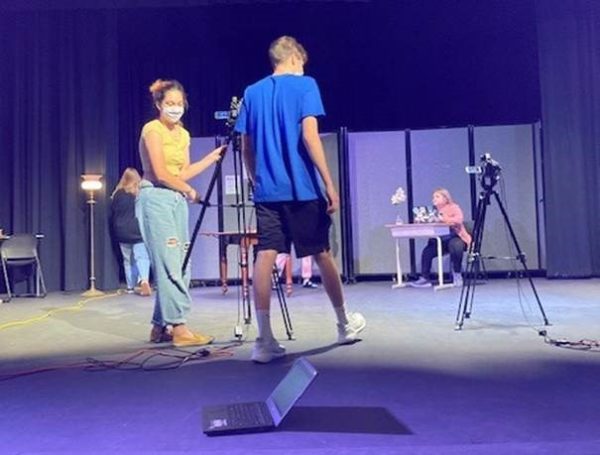
How Pittsburgh high schools are reinventing theater during the pandemic
Photo: On the set of the North Allegheny Intermediate High School production of “Help Desk: A Stay-at-Home Play.”
At first Xavier Perry was hesitant to participate in the fall production of Neil Simon’s “Lost in Yonkers” at Fox Chapel High School. Although he’d been a regular cast member in school productions since his freshman year, the senior resisted trying out – until he was contacted by the director, adjunct teacher Kristiann Josephs.
“I couldn’t say no to her,” says Xavier, who ended up taking on the role of Jay Kurnitz.
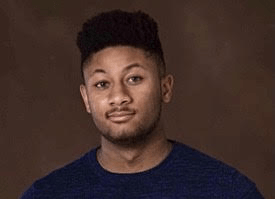
The production wasn’t an easy one. The cast only had four weeks of rehearsals via Zoom. Social distancing measures added a layer of difficulty on stage. Another hurdle: it was the first time a play would be held outdoors, in Aspinwall Riverfront Park.
“It felt almost impossible,” Xavier says.
A pandemic challenge
Last spring, Pittsburgh-area high schools were forced to cancel productions due to the COVID-19 pandemic. Weeks of rehearsals went for naught. Seniors who wanted one last moment in the spotlight stood by as their farewell performances went dark.
Stages were empty, lights were dimmed, then extinguished.
But in the wake of last spring’s school closures, and with limited in-person classes for the fall semester, high schools are reshaping the way stage productions are presented. Rehearsals are being held remotely. When high school groups do meet, social distancing replaces intimate exchanges. Facetime, Zoom, Google Meet and other tech innovations substitute for traditional stagecraft.
Theater arts have a new paradigm. Instead of following cues from the director, students are now forced to be intuitive. Drama, that bulwark of theater productions, now shares prominence with a tool many comedians employ: improvisation rules in these pandemic times.
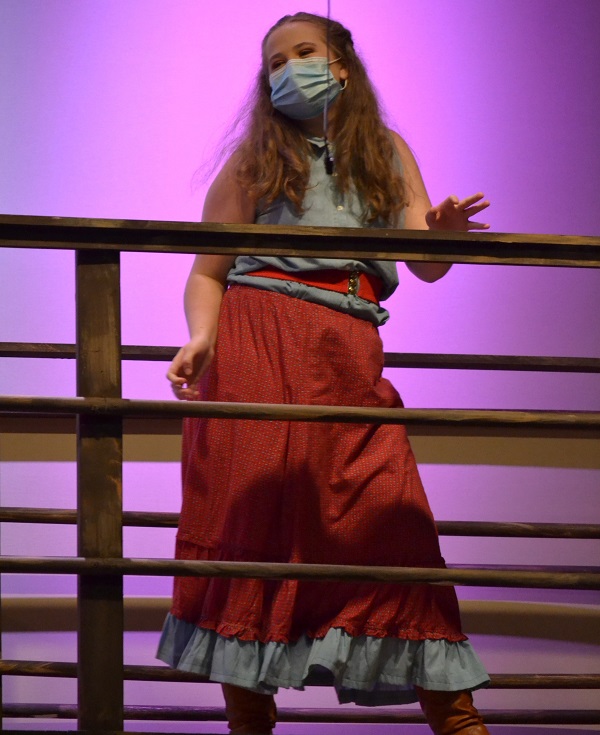
Lessons in resilience and resolution
Phelan Newman, a sophomore at Penn-Trafford High School, was disappointed when the school’s spring production of “Footloose” was canceled, even though she only had a minor role in the ensemble cast.
“It was a lot to take in,” Phelan says, noting the school closed the day before the final rehearsal in March. “I felt terrible for the senior class of 2020. Some of them had prominent roles for the first time. It was very emotional.”
Phelan was heartened when the high school’s theater group was able to do a showcase version of “Footloose” in July that was filmed and streamed online. The cast used pool noodles to ensure the suggested six feet of social distancing.
For the fall production, Phelan earned the role of Miss Appropriate in “Most Likely To: The Senior Superlative Monologues” by Michael Tester. The production was scheduled to be filmed and streamed online.
It wasn’t an optimum experience, Phelan admits. She’d rather be on stage, feeding off the energy from the cast and audience. But her passion for theater remains undiminished despite the pandemic’s impact.
“I plan to keep on doing this,” says Phelan who wants to make a career of acting.
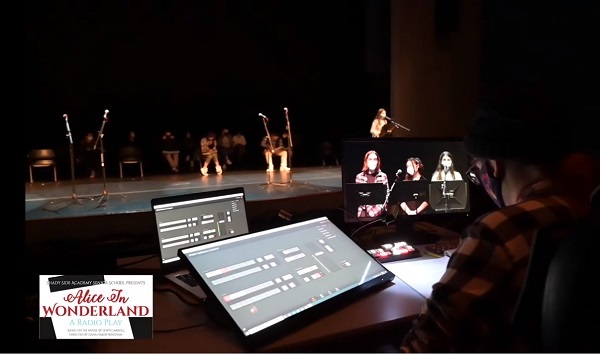
Shady Side Academy Senior School found another way to make theater with safety protocols in place. Their production of “Alice in Wonderland: A Radio Play” seemed to be a terrific solution to 2020 challenges. “Alice” was filmed on stage, complete with radio sound effects and masked actors, and live-streamed to its at-home audience. (You can watch the show here.)
Daniel Franklin, a visual arts and theater instructor and director/producer for Hampton High School Drama Club, says her students have shown a remarkable amount of resilience and resolution during the pandemic. They adhere to social distancing protocols and don’t complain about wearing masks. They do everything that Franklin and the administration asked. All because theater is in their blood.
“We want to put on a show,” says Franklin, who plans to stage “The Mystery of Edwin Drood” in the spring. “But more than that, we want an experience for the kids. They crave being on that stage. Their friends are involved in it, and they need something familiar. They deserve to continue to have that creative outlet. And if there’s a way we can help them do it – whether the show even gets seen – so much the better.”
The new theatrical skillset
Director Nick Mitchell always has stressed professionalism to theater students at Plum High School. For the school’s fall production, he asked students to audition and practice via self-taping, now popular in professional theatrical circles.
“Every audition that’s being held, from a community level to a regional to schools to colleges, is self-tape,” Mitchell says. “I think It’s a skill set that has largely been ignored and not able to be taught.”
That skill is being put to good use this fall at Plum. Instead of staging a full or scaled-down production, Mitchell’s students are creating monologues that will be accessible online.
“They can bring in monologues from TV shows, from Shakespeare, from anywhere, absolutely anything,” Mitchell says. “They’ll be coached through it, coached in how to film it. … It gives them a great skillset and gives me a chance to do a little more one-on-one acting training.”
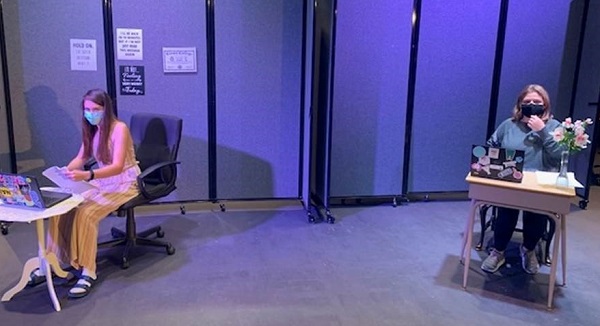
At North Allegheny Intermediate High School, the first attempt to stage a fall production featuring monologues didn’t resonate with student actors. The kids wanted to work with each other even if it was online, according to director Bryan Kiggins, a school guidance counselor,
Instead, Kiggins and retired counselor/director Diane Feliciani selected a new script called “Help Desk: A Stay-at-Home Play” by Don Zolidis, a comedy based on calls to an IT help desk. The kids were thrilled to be able to collaborate. Their parts were first filmed individually and then spliced together.
“They all still want to try to be normal and do things that keep that same feel,” Kiggins says. “The feedback was great. Even though it was very different, and I’ve never done anything like it before, it was good to be able to connect with those kids and give them an outlet and let them try something.”
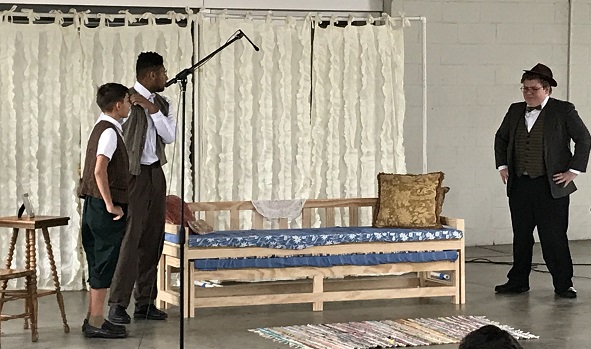
The show can go on
At Fox Chapel, it took a while for director Kristiann Josephs to get permission to mount their production of “Lost in Yonkers.” The administration eventually determined a play was feasible if protocols were followed.
Still, Josephs faced another, more critical problem: Would students be willing to perform the play outdoors with social distancing measures in place?
Twenty-five kids auditioned. “I think that shows so many kids were willing to go for it because they needed something to do,” Josephs says. “They’d been locked up, learning virtually. They were so happy to get out and do something, and the students who were cast grabbed the bull by the horns.
“I think they were exhilarated. I had three seniors this year, and they were so happy it wasn’t a watered-down version of their senior year.”
Xavier Perry jokes that the weather for each performance of “Lost in Yonkers” was a “scorching 50 degrees with fast breezes to cool us off, not to mention trains passing by through scenes.”
It might not have been the best school production he’s been a part of but being in the cast of “Lost in Yonkers” was an experience he’ll never forget.
“I was super proud of our set and crew team who helped to make such a minimalistic set for us to use so quickly,” Xavier says. “It was truly marvelous how we pulled it off. “The show was an amazing experience and, as a future performer, I’m grateful for the lessons I learned from castmates, crew and Kristiann herself.”